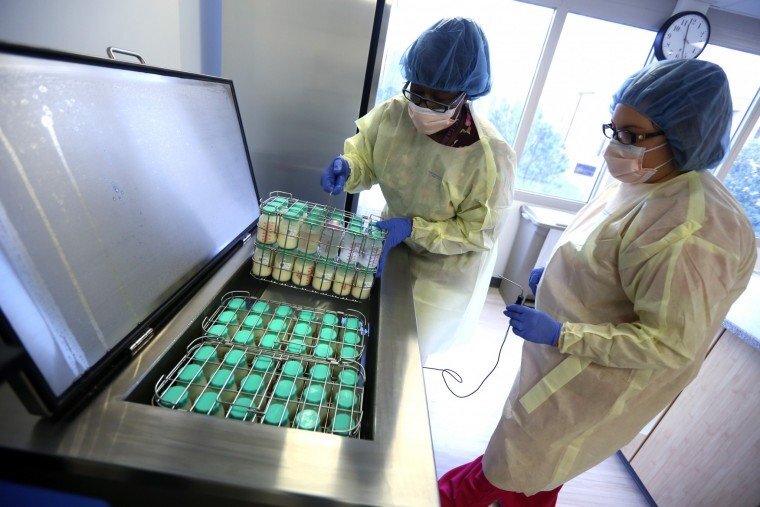New breast milk bank opened on World Breastfeeding Week

TEHRAN – The fifth breast milk bank in Iran was established in the city of Shiraz during a ceremony on the occasion of World Breastfeeding Week, an annual celebration which is being held every year from August 1 to 7.
According to studies, breast milk is the best choice for infants and increase their IQ nine notches in comparison with babies who do not consume human milk, the head of Iranian Scientific Breastfeeding Promotion Society, Farid Imanzadeh, said during the ceremony.
He also pointed to emotional links between infants and mothers during breastfeeding, saying, thee breast milk bank is for mothers who cannot feed their babies and provides them with sterilized breast milk.
The bank collects breast milk of volunteer mothers and keeps them after pasteurization and sterilization for infants who cannot be fed with breast milk, he explained.
The first breast milk bank was established in the city of Tabriz, northwestern Iran, in 2016.
Other Iranian cities namely Ahvaz, Mashhad, and Isfahan are also equipped with breast milk banks.
In recent years, mothers tend to use the formula for their newborns, but the health ministry promotes breastfeeding nationwide, the deputy health minister said during the ceremony.
Alireza Raeisi said that breast milk prevents several diseases and is one of the best foods for newborns.
The health ministry plans to prescribe a formula for newborns suffering from diseases or mothers who cannot feed their infants, he said.
“Recent statistics released by the health ministry show 14% growth of breastfeeding in comparison with previous years and we anticipate more growth in the coming years.”
Meanwhile, neonatologist Ali-Akbar Sayyari said breast milk contains several antibodies and is sterile. Breast milk is nutritious enough for a baby after six months of age.
No other diet is recommended during breastfeeding for mothers, he said.
World Breastfeeding Week 2019
According to the World Health Organization (WHO) website, the WBW encourages breastfeeding and improve the health of babies around the world. It commemorates the Innocenti Declaration signed in August 1990 by government policymakers, WHO, UNICEF and other organizations to protect, promote and support breastfeeding.
This year, WHO is working with UNICEF and partners to promote the importance of family-friendly policies to enable breastfeeding and help parents nurture and bond with their children in early life, when it matters most. This includes enacting paid maternity leave for a minimum of 18 weeks, and paid paternity leave to encourage shared responsibility of caring for their children on an equal basis.
Breastfeeding promotes better health for mothers and children alike. Increasing breastfeeding to near-universal levels could save more than 800,000 lives every year, the majority being children under 6 months. Breastfeeding decreases the risk of mothers developing breast cancer, ovarian cancer, type 2 diabetes, and heart disease. It is estimated that increased breastfeeding could avert 20,000 maternal deaths each year due to breast cancer.
SB/MG
